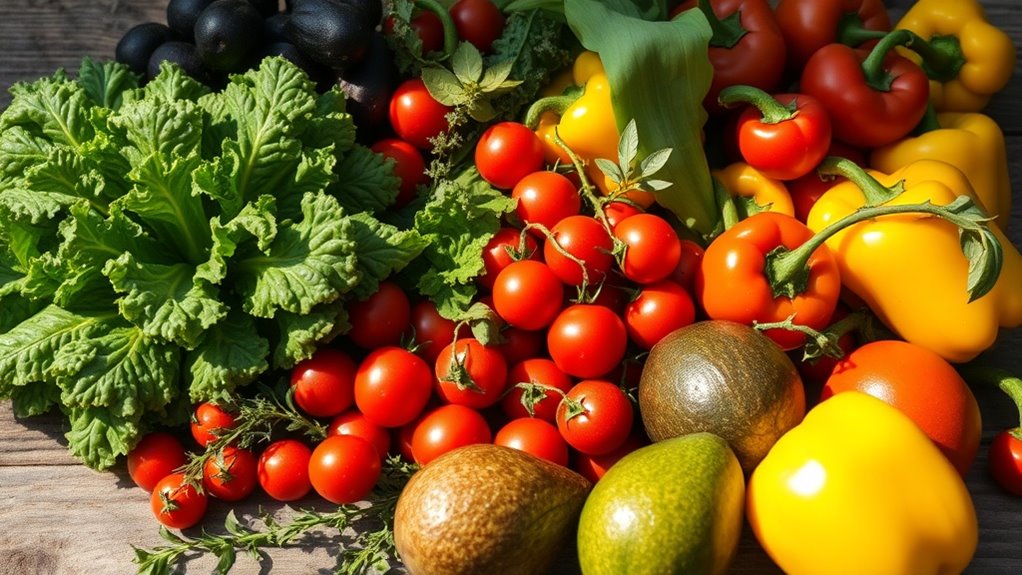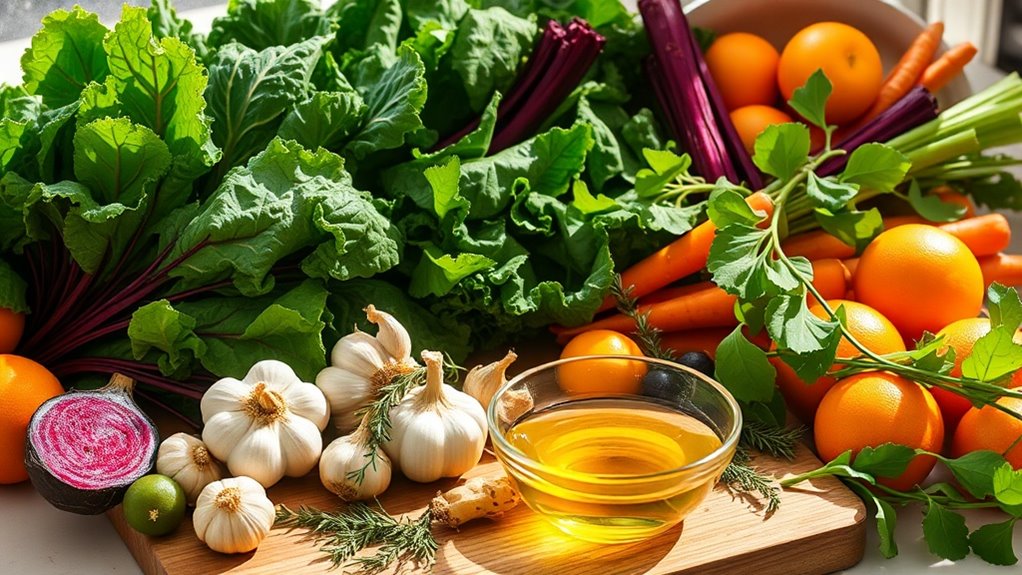Healing Starts on Your Plate- 5 Anti-Inflammatory Foods
Your diet plays a crucial role in managing inflammation and enhancing overall health. By incorporating specific anti-inflammatory foods, you can effectively combat chronic inflammation. Turmeric, berries, fatty fish, leafy greens, and olive oil are all backed by research to support your body’s healing processes. Each of these foods offers unique benefits that can transform your health. Curious about how to seamlessly integrate them into your meals? Let’s explore each one further.
Turmeric
Turmeric, often hailed as a golden spice, boasts powerful anti-inflammatory properties primarily due to its active compound, curcumin.
When you incorporate turmeric into your diet, you’re tapping into its potential to reduce inflammation, which can help alleviate symptoms of conditions like arthritis and heart disease. Research shows that curcumin effectively blocks inflammatory pathways in the body.
You can easily add turmeric to smoothies, curries, or teas, enhancing both flavor and health benefits. Additionally, turmeric’s versatility extends beyond culinary uses, as it can also be found in skincare products that harness its anti-inflammatory and antioxidant properties.
Just remember, pairing it with black pepper can significantly boost curcumin absorption, maximizing its anti-inflammatory effects.
Enjoy this spice for a healthier, inflammation-free life!
Berries
Incorporating a variety of colorful fruits into your diet can further enhance your anti-inflammatory efforts, and berries are among the most powerful options.
Packed with antioxidants, especially flavonoids, berries like blueberries, strawberries, and raspberries can reduce inflammation and combat oxidative stress.
Studies show that regular berry consumption may lower markers of inflammation in the body, promoting better overall health.
Their high fiber content also supports gut health, which is crucial for managing inflammation. Additionally, the consumption of berries has been linked to improved heart health and reduced risk of chronic diseases.
Enjoy them fresh, in smoothies, or as toppings to boost your meals while reaping their numerous health benefits.
Make berries a staple in your anti-inflammatory diet!
Fatty Fish
Fatty fish, such as salmon, mackerel, and sardines, are nutritional powerhouses known for their rich content of omega-3 fatty acids.
These essential fats play a crucial role in reducing inflammation throughout your body.
Research shows that regular consumption of fatty fish can help lower markers of inflammation, potentially reducing the risk of chronic diseases like heart disease and arthritis.
Additionally, omega-3s support brain health, enhancing cognitive function and mood. Studies indicate that these anti-inflammatory properties can also aid in the management of autoimmune conditions.
Aim to include fatty fish in your diet at least twice a week to reap these benefits and promote overall health.
Your body will thank you for it!
Leafy Greens
Leafy greens like spinach, kale, and Swiss chard are packed with nutrients that can significantly contribute to reducing inflammation. These vegetables are rich in vitamins, minerals, and antioxidants, which support your body’s healing processes. Incorporating leafy greens into your diet can enhance your overall health while combating inflammation. Furthermore, they also serve as excellent sources of delicious foods for gut health, promoting a balanced microbiome.
| Nutrient | Benefit |
|—————-|————————–|
| Vitamin K | Supports bone health |
| Vitamin C | Boosts immune function |
| Antioxidants | Protects against oxidative stress
Olive Oil
Olive oil stands out as a cornerstone of the Mediterranean diet, known for its powerful anti-inflammatory properties. Rich in monounsaturated fats and antioxidants, especially oleocanthal, it mimics the effects of ibuprofen by reducing inflammation. Incorporating extra virgin olive oil into your meals can help lower the risk of chronic diseases, such as heart disease and arthritis. Additionally, full-fat products like olive oil can provide essential nutrients that are often stripped away in lower-fat alternatives. Use it in salad dressings, drizzle it over vegetables, or as a dip for bread.




